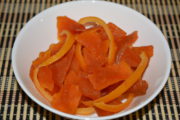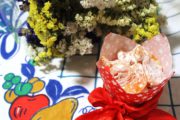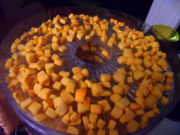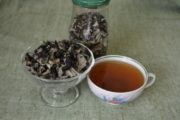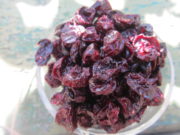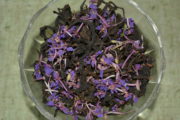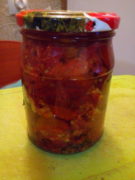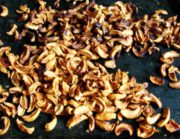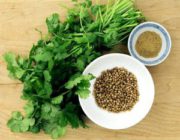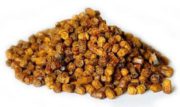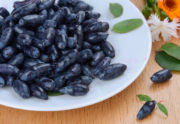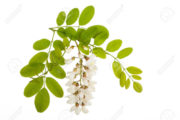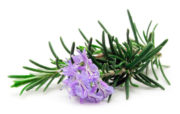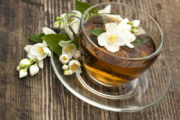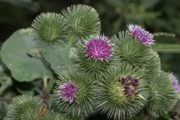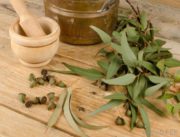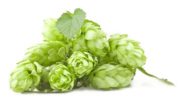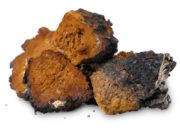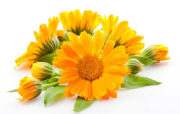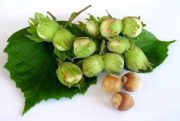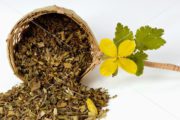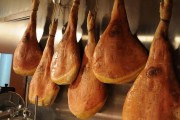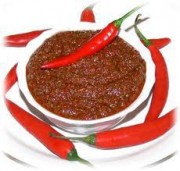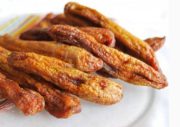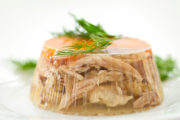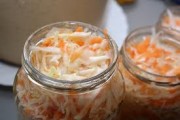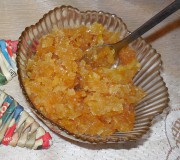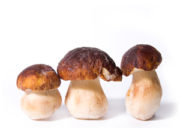Drying
One of the most common ways to prepare food for the winter is drying. It is gaining more and more popularity, as modern electric dryers for vegetables and fruits have replaced the oven with the door ajar and natural air drying. Any vegetables, berries and fruits, mushrooms, spices and medicinal herbs are dried. Skilled housewives prepare various types of herbal teas for the winter, prepare candied fruits, marshmallows, and even dry fish and meat. The apparent ease of this method has its pitfalls, ranging from preliminary preparation of products to maintaining the desired temperature. To dry foods with the least loss of beneficial properties, follow the instructions of professionals. Step-by-step recipes with photos collected here will help you with this.
The best recipes with photos
Homemade candied pumpkin and orange in an electric dryer
Candied fruits made from pumpkin and orange peels are an excellent dessert for tea. For children, this dish replaces candy - tasty and natural! My step-by-step recipe with photos will tell you in detail how to make candied pumpkin and orange peels at home using an electric dryer for vegetables and fruits.
How to make candied pumpkin at home
Homemade candied pumpkin is tasty and healthy. After all, pumpkin contains a large amount of microelements and is especially useful for people who have problems with the intestines and digestion. It also has a good effect on the kidneys, cleansing them, and benefits people with iron deficiency anemia.
Dried pumpkin in an electric dryer for the winter
And why was Cinderella so upset when her carriage turned into a pumpkin? Well, what a sweetness in that pompous carriage - a piece of wood, the only joy is that it is gilded! That's what pumpkin is: unpretentious, productive, tasty, healthy, nutritious! One drawback - the berry is too big, just as big as a carriage!
How to make homemade fermented raspberry leaf tea
Raspberry leaf tea is aromatic and very healthy. Only, if you simply brew a dried leaf, you are unlikely to feel the special aroma from the tea, although it has no less benefits. In order for the leaf to smell fragrant, it must be fermented.
Delicious sun-dried cherries
Instead of raisins or other purchased dried fruits, you can use home-made dried cherries. By making them yourself at home, you will be 100% sure that they are completely natural, healthy and tasty. Such sun-dried cherries are preserved very well if they are properly dried and prepared for storage.
The last notes
Fermented Koporye tea from Ivan tea leaves
Fermented tea made from the fireweed plant or, simply, Ivan tea, has amazing healing and restorative properties. But in order for Koporye tea to “sparkle” with all its colors in your cup, the leaves of Ivan tea must go through not only a long process of collection and drying.
Sun-dried tomatoes in oil with Italian herbs for the winter
This recipe for preparing tomatoes for the winter is not quite ordinary, since in our country it is more customary to pickle or salt tomatoes, make tomato sauces, but not dry them or dry them. But those who have at least once tried sun-dried tomatoes are sure to prepare at least a couple of jars for the winter every year.
Dried apples in the oven
You can dry apples of any size in electric dryers, but only small garden apples are suitable for drying in the oven - they are not too sweet, and late varieties of apples have little juice.
Dried cilantro (coriander) for the winter: how and when to dry herbs and cilantro seeds at home
Cilantro is the most popular spice for meat and vegetable dishes. Cilantro is also highly valued in the Caucasus, adding it to almost all dishes. Moreover, not only the green part of the plant is used in cooking, but also the seeds. Many people know cilantro by another name - coriander, but these are just the seeds of cilantro, which are used in baking.
Bee bread: storage methods at home - how to dry bee bread for storage
Recently, a beekeeping product such as bee bread has become widespread. Bee bread received another name, “bee bread”, due to the fact that bees can feed on it all year round.
Preparing honeysuckle: dry the berries, leaves and twigs of honeysuckle, prepare a delicious marshmallow.
There are about 200 varieties of honeysuckle, but not all are edible. Many of them are very poisonous and should not be eaten. The berries are edible if they have an elongated, oblong shape and a color ranging from dark blue to black. The taste of the berries also varies, from bitterly sour to sweet and sour.
White acacia: harvesting flowers, leaves and bark at home
White acacia flowers have an incredible honey aroma, and acacia is called a “female plant” for its beneficial properties. After all, many “women’s diseases” recede to flavonoids, glycosides, pectins and essential oils of white acacia.
Dried rosemary: ways to prepare spicy herbs - how to dry rosemary at home
Rosemary is a shrub whose young green twigs, flowers and leaves are widely used for culinary and medicinal purposes. The taste and aroma of this plant is spicy, reminiscent of the aroma of coniferous trees.
How to harvest and dry jasmine at home
Jasmine tea is extremely popular in China. Its subtle aroma won the hearts of everyone who tried it at least once. There are many recipes for making jasmine tea, but all of these recipes always use dried jasmine flowers. The matter is complicated by the fact that all teas are sold ready-made, and it is simply impossible to find dried jasmine flowers separately.
Collecting and drying burdock root at home
Burdock is considered one of the most useful weeds. Its leaves are widely used in cooking and medicine. However, burdock roots have the most miraculous qualities. In cosmetology and medicine there are many recipes for using this magical root.
Eucalyptus - proper harvesting and drying
Eucalyptus belongs to the myrtle family, and has many varieties, from giant tropical trees, to garden shrubs and decorative indoor varieties. But they all have one thing in common - it is an evergreen plant, and the content of essential oils does not depend on the size of the tree itself. It is the same everywhere and is directly proportional to the size of the sheet.
Hops: rules for collecting and drying at home - preparing hop cones for the winter
Hops are primarily associated with brewing. The tart aromatic taste of the drink is given by the cones formed after the female plant has flowered. Hops are also widely used for medicinal and cosmetic purposes. The chemical elements that make up this plant have anti-inflammatory, antihistamine, analgesic and calming effects.Hop decoctions are used to rinse hair, and are also added to cosmetics to combat acne and dermatitis. To take advantage of the gifts of nature in winter, hop cones need to be collected in a timely manner and properly dried.
Chaga mushroom: rules for collecting and drying birch chaga - harvesting chaga at home
Chaga (birch mushroom) are small growths on deciduous trees. You can find mushrooms on trees such as alder, maple or rowan, but only birch chaga has unique medicinal properties. The benefits of these growths are undeniable. Since ancient times, they have been used by traditional healers to treat various diseases, including malignant neoplasms. Also, tinctures, decoctions, or simply brewed into tea are prepared from chaga. We’ll talk about how to properly collect and dry chaga for the winter in this article.
How to properly collect and dry calendula for the winter - harvesting calendula at home
Unpretentious calendula often decorates summer cottages. However, many people plant this annual plant of the Asteraceae family not only for decorative purposes, but also to be able to prepare medicinal raw materials for the winter. Harvesting calendula is not a difficult task, but it requires compliance with some rules that will help preserve all the healing properties of this herb.
Dried hazelnuts (hazelnuts) – drying at home
Some recipes recommend using only hazelnuts, while others recommend hazelnuts or hazelnuts, and insist on their own version of the recipe.Are there any differences between hazelnuts and hazels? Essentially, these are the same nut, but hazel is a hazelnut, that is, wild, and hazelnuts are a cultivated variety. Hazelnuts may be slightly larger than their wild counterpart, but they are absolutely identical in taste and nutrients.
Celandine - drying at home
Celandine is called a medicinal herb for 100 diseases and its healing properties are compared to ginseng. But, like any medicine, celandine can become a poison if it is not properly prepared and used. We won’t talk about treatment methods, but I will tell you about the correct preparation of celandine.

